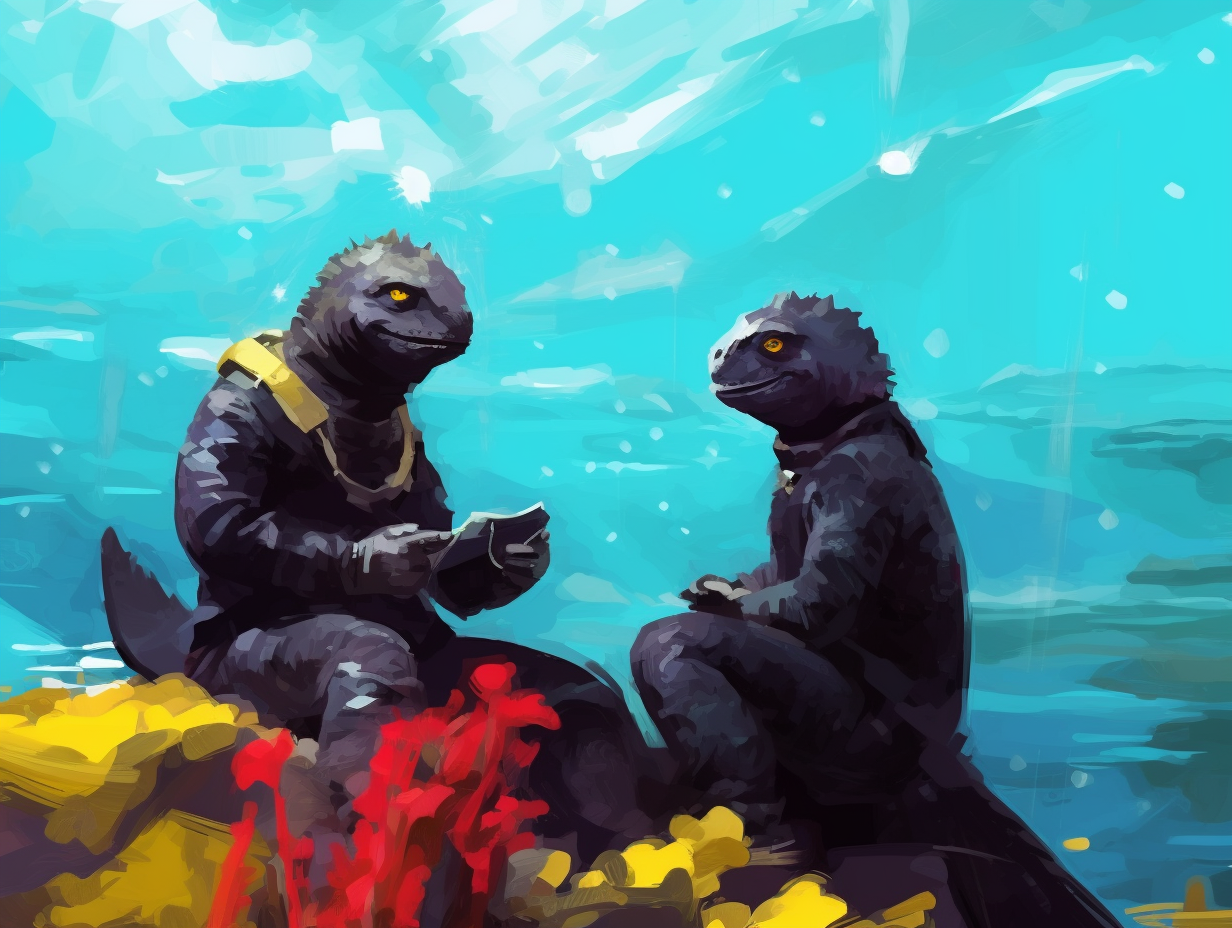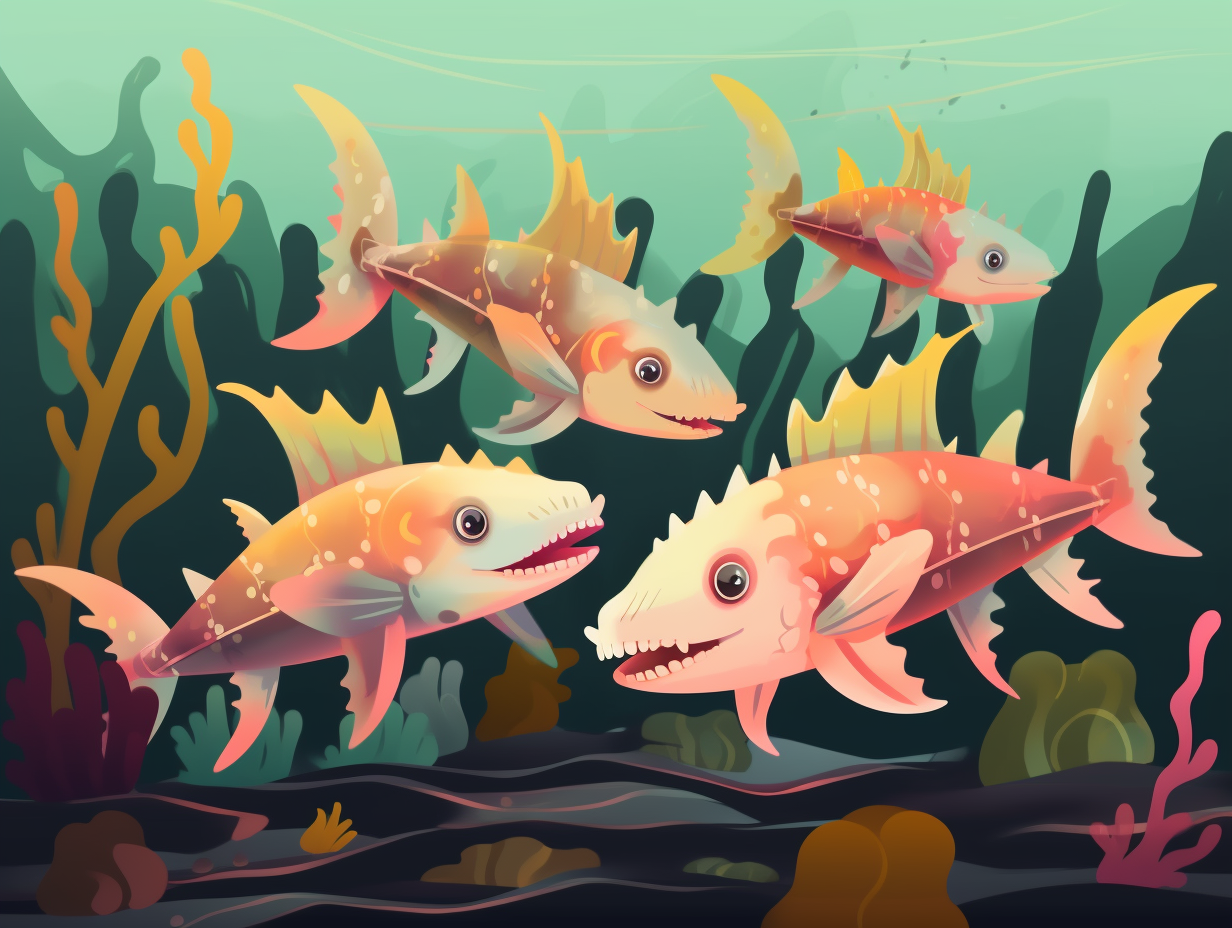Discover the Adorable World: Top 9 Fun Facts About Baby Turtles You'll Love

1. Built-in Compass Tiny Turtles
Who needs GPS when you've got the moon and Earth's magnetic field? Baby turtles are like tiny aquatic explorers with a built-in compass: Upon hatching, they instinctively swim away from the beach to the open ocean, using moonlight and the Earth's magnetic field as navigational cues, successfully avoiding predators in shallow waters and embarking on a journey that spans thousands of miles without hitching a ride on ocean currents.
Source => en.wikipedia.org
2. Gender Reveal Thermostat
When Mother Nature plays "Goldilocks and the Three Bears" with baby turtles, she turns the thermostat just right for their gender reveal party: In sea turtle nests, warmer temperatures lead to more female hatchlings, while cooler temperatures result in more male hatchlings, thanks to their unique sex determination system.
Source => a-z-animals.com

Did you know that a prehistoric turtle was as big as a smart car and weighed up to two tons? Discover the fascinating story of the gigantic Stupendemys!
=> Fun Facts about Turtles
3. Eggs-traordinary Turtle Moms
Turtle mothers-to-be are really eggs-traordinary: They can lay up to 110 eggs in a single clutch, with Green sea turtles topping the charts at 120 eggs. But don't hold your breath; these baby turtles take their sweet time to hatch, needing up to 90 days of incubation depending on species, temperature, humidity, and nest depth before they burst forth and scurry to begin their wild adventures.
Source => theturtlehub.com
4. Savvy Snorkelers & Anti-Bird Missiles
Who knew turtles were such savvy snorkelers, with their own GPS and anti-bird missiles? Hilarious prelude: Baby turtles emerge from their sandy nests with a built-in compass set to "ocean" mode and a flair for dramatic deep dives: Serious reveal: They rely on light intensity or an innate magnetic compass to find their way to the water, and they're known to swim fervently for up to 48 hours to reach safer depths, diving swiftly whenever they spot airborne threats above.
Source => seaworld.org

5. Sunbathing Gender Deciders
In the turtle world, it's all about sunbathing and hot tub parties when determining one's gender: warmer temperatures yield female turtles, while cooler temperatures give rise to males, resulting in a single nest boasting a diverse mix of baby turtles.
Source => oliveridleyproject.org
6. Oceanic Marathon Runners
Baby sea turtles are like little compass-wielding, oceanic marathon runners, using the celestial heavens to find their life's purpose: They rely on the light intensity of the open horizon, set an internal magnetic compass, and ride the undertow out to sea, entering a "swim frenzy" for up to 48 hours to reach the safety of deeper waters. Moreover, these mysterious mini navigators spend their "lost years" traversing the open ocean before venturing into more familiar coastal habitats, proving that they, too, understand the mystique of a grand adventure.
Source => seaworld.org
7. Non-Stop Sea Crossing Babies
Why did the baby turtle cross the ocean? To get to the other side, of course—and without a single pit stop! Snicker-worthy jokes aside: baby turtles have the astounding ability to swim non-stop for up to three days straight, thanks to their blood storing oxygen more efficiently than other animals, ensuring they reach safe habitats to thrive in.
Source => nationalgeographic.com
8. Nature's Original GPS Hatchlings
Forget the GPS, baby sea turtles have been rocking nature's original navigation system since the beginning of time: These tiny hatchlings can sense the Earth's magnetic field to find their way to the ocean, using an innate ability called magnetoreception. With such a handy-dandy compass, they avoid danger and predators as they traverse the beach, and keep their sense of direction sharp throughout their globetrotting adventures until they reach adulthood and return to lay eggs of their own.
Source => ocean.si.edu
9. Baby Turtles: Your Living GPS
Next time you're lost, just ask a baby turtle for directions—they've got a built-in GPS! Comedy aside: these tiny navigators are born with an innate ability to sense the Earth's magnetic field that allows them to travel hundreds of miles to find the exact beach where they were born to lay their eggs.
Source => conserveturtles.org
Related Fun Facts




















